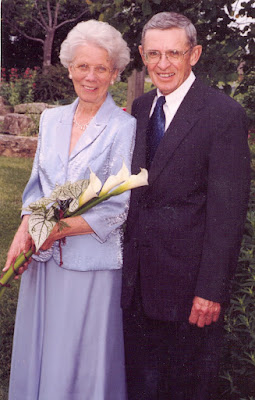In my earliest, hazy memories, just beyond my realized consciousness, there is a face. It is the most beautiful face in the world. It is my mother.
Lillian Schroeder Epp was born October 23, 1924. One hundred years ago. She died in 2000 and so there is a whole generation of her descendants that have no memories of her. I would like to remind those who remember of her beauty and enlighten those who never met her.
Beauty of Home
My childhood home and my mother seem almost synonymous. She was a constant presence. A home doesn’t have to be spotless or stylish to be beautiful; the beauty of a home has always been the people who inhabit the house. Mom made a beautiful home. It was a place of work, certainly. She who gardened and canned, cooked and cleaned, read stories and sewed clothing made a place that was peaceful and secure.
The home that she had grown up in was rich in a vibrant faith, but struggled economically.The Great Depression hit her large family especially hard. There were no safety nets for farmers in those days. She remembered lean times but never seemed especially scarred by the experience. True, she was not wasteful. She was one who could take what she had, make something wonderful and think of it as an adventure.
Beauty of Acceptance
There is great beauty in acceptance. It doesn’t demand but it does receive. We were blessed to receive her acceptance. “I never felt pressured to succeed. . . She gave us all a lot of liberty to pursue our own dreams, and she seemed content and happy with what we did,” wrote my brother Paul when looking back over our mother’s life. “She was more concerned with who we were than with what we did.” That was pretty much how she accepted life. Whether it was a move to a rustic farm house, a cancer diagnosis or a beautiful day, each thing was a gift from God.
Beauty of Faith
Much of her beauty came because she walked with Jesus. He was her companion and friend; her Savior. Her faith permeated our lives. It wasn’t just that we attended every church service or that we had daily devotions, but it was a part of everything she did,everything she was. It was lived out in her life in countless ways, mostly in her true goodness.
We who knew her best know her beauty. Over twenty years after her death we still “rise up and call her blessed.” (Proverbs 31:28) And we know we were blessed because she was our mother.
.jpg)





.JPG)

